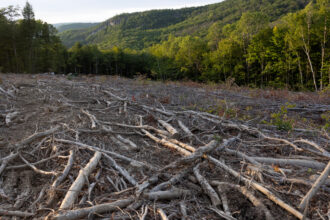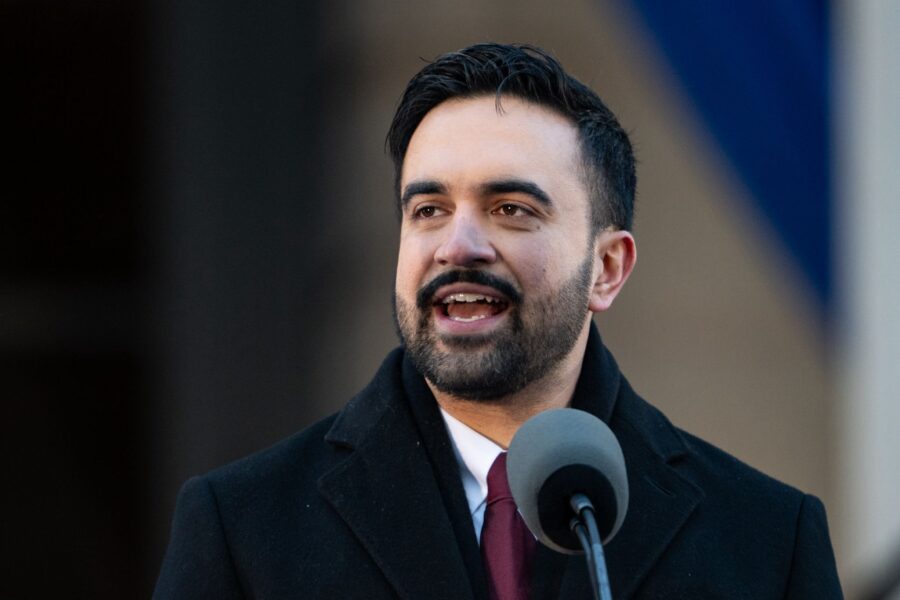Some of the Obama Administration’s most outspoken advocates on climate change urged health experts to reach beyond the ivory tower as they reunited for the launch of a new center, focused on the health impacts of climate change, at Harvard University on Wednesday.
Gina McCarthy, the former head of the Environmental Protection Agency who will lead the Center for Climate, Health and the Global Environment (C-CHANGE), joined John Kerry, the former Secretary of State who negotiated the Paris Agreement in 2015, and John Holdren, Obama’s science advisor, to open its doors.
McCarthy, in an energetic speech that stood in sharp contrast to the gloom and doom that often accompanies talk of global warming, cast the threat of climate change as an opportunity to solve two problems at once.
“We can actually focus a lens on public health to improve people’s lives today, and that lens will steer us in exactly the direction that we need to go to address the challenge of climate change, she said.
Holdren noted with alarm that his old desk at the White House remains vacant, a symptom of the Trump administration’s disregard of science.
“We have seen in Washington in the last year and a third an administration in place that seems not to want to keep science and scientists relevant,” Holdren said. “Most of the highest positions in science and technology are still vacant, have not even been nominated. There is no OSTP [Office of Science and Technology Policy] director or presidential science advisor. There is no president’s council of advisors on science and technology. There are no associate directors of OSTP.”
“This administration seems to believe it can do without inputs from science and technology. They can’t,” Holdren said. “We are already suffering from the lack of those inputs. We will suffer further.”
The Intersection of Health and Climate
McCarthy sought to reframe the discussion on climate change away from “polar bears in distant lands” to immediate impacts on human health and the prospective benefits of transitioning to renewable energy.
In India, an estimated 1.1 million premature deaths every year are caused primarily to coal-fired power plants and primitive cook stoves, McCarthy said. “Wouldn’t it be great to say let’s not talk about climate change and instead talk about raising people up by talking about healthy lives? That is what I want to do.”
McCarthy said similar benefits can be achieved closer to home by replacing diesel buses with zero-emission electric buses and by focusing on low income and minority communities most impacted by emissions. “Pollution keeps people down,” McCarthy said. “Clean healthy lives raises people up. It gives them a voice in their own future.”
Fighting for U.S. Climate Progress
As EPA administrator, McCarthy wrote the Clean Power Plan to reduce carbon dioxide emissions from power plants and regulations to increase fuel efficiency in cars—rules that her successor, Scott Pruitt, is now working to reverse.
Since leaving the EPA, McCarthy has been increasingly vocal in urging scientists, politicians and environmental advocates to fight efforts by the Trump administration to roll back key U.S. climate policies.
McCarthy cited a Harvard study published Tuesday showing that the death toll in Puerto Rico was much greater than the official count as an example of how science can play a role in shaping public policy related to climate change.
The study came out as Puerto Rico was planning for the start of a new hurricane season. The territory’s governor, Ricardo Rosselló, “absorbed it and said: you know, I can learn from this,” McCarthy said.
Kerry underscored the need to move quickly to mitigate the worst impacts of climate change. “Lives will be lost,” he said. “People will get sick and die, whole populations will be moved and have to move as a result of what is happening to their land, to their ability to produce food, to disease and other things because of decisions that have either been made or not made in Washington.”
Kerry urged the audience of scientists and other health experts in attendance to reach beyond their own echo chambers of peer reviewed journals and conferences. “We’ve got to make people feel this again,” he said.
About This Story
Perhaps you noticed: This story, like all the news we publish, is free to read. That’s because Inside Climate News is a 501c3 nonprofit organization. We do not charge a subscription fee, lock our news behind a paywall, or clutter our website with ads. We make our news on climate and the environment freely available to you and anyone who wants it.
That’s not all. We also share our news for free with scores of other media organizations around the country. Many of them can’t afford to do environmental journalism of their own. We’ve built bureaus from coast to coast to report local stories, collaborate with local newsrooms and co-publish articles so that this vital work is shared as widely as possible.
Two of us launched ICN in 2007. Six years later we earned a Pulitzer Prize for National Reporting, and now we run the oldest and largest dedicated climate newsroom in the nation. We tell the story in all its complexity. We hold polluters accountable. We expose environmental injustice. We debunk misinformation. We scrutinize solutions and inspire action.
Donations from readers like you fund every aspect of what we do. If you don’t already, will you support our ongoing work, our reporting on the biggest crisis facing our planet, and help us reach even more readers in more places?
Please take a moment to make a tax-deductible donation. Every one of them makes a difference.
Thank you,













